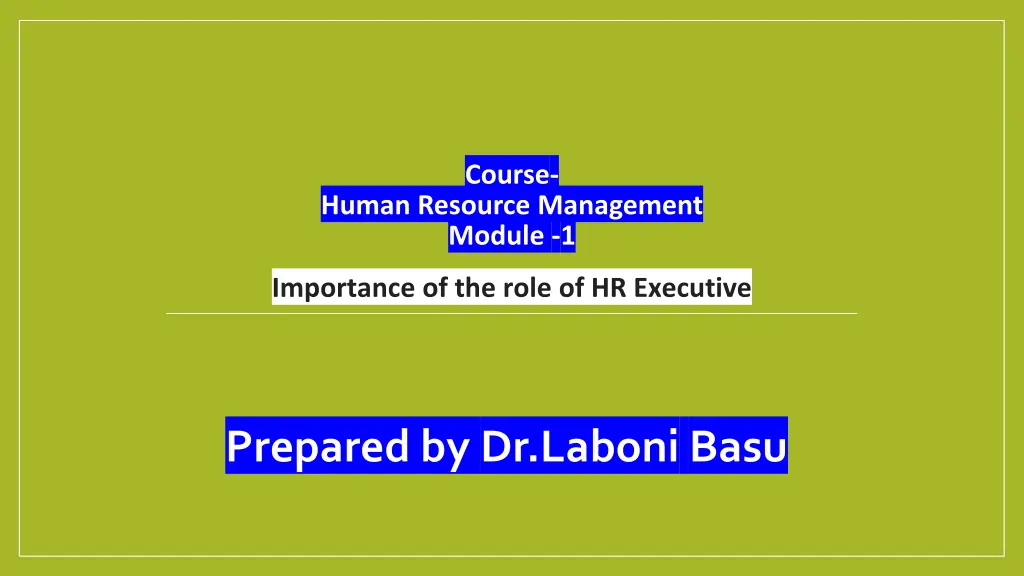
Understanding the Vital Role of HR Executives in Payroll and Employee Data Management
Explore the crucial responsibilities of HR executives in ensuring payroll accuracy, compliance with labor laws, data integrity, onboarding/offboarding processes, and security measures. Learn how these functions are essential for organizational efficiency and employee well-being.
Download Presentation

Please find below an Image/Link to download the presentation.
The content on the website is provided AS IS for your information and personal use only. It may not be sold, licensed, or shared on other websites without obtaining consent from the author. If you encounter any issues during the download, it is possible that the publisher has removed the file from their server.
You are allowed to download the files provided on this website for personal or commercial use, subject to the condition that they are used lawfully. All files are the property of their respective owners.
The content on the website is provided AS IS for your information and personal use only. It may not be sold, licensed, or shared on other websites without obtaining consent from the author.
E N D
Presentation Transcript
Course- Human Resource Management Module -1 Importance of the role of HR Executive Prepared by Dr.Laboni Basu
HR Executive Responsibilities in Payroll and Importance of Employee Data Management Payroll Management- Accuracy, Compliance Timeliness Verification and Reconciliation Data Management- Data Integrity Onboarding and Offboarding Reporting Compliance and Security
Payroll Management: Accuracy: HR executives are responsible for ensuring the accuracy of employee payroll data, including salaries, bonuses, overtime, and deductions. Accuracy is crucial to maintain employee satisfaction and compliance with labor laws. Compliance: HR executives must stay updated with labor laws and regulations to ensure that the organization's payroll processes are compliant with legal requirements. This includes tax calculations, social security contributions, and other statutory deductions.
Payroll Management: Timeliness: Timely processing of payroll is essential for maintaining employee satisfaction and ensuring that employees are paid accurately and on time. Verification responsible for verifying the accuracy of timekeeping records, reconciling payroll data, and addressing any discrepancies. and Reconciliation: HR executives are
Employee Data Management: Data Integrity: HR executives are responsible for maintaining and updating employee records, maintaining confidentiality and security of employee information. ensuring data accuracy, and Onboarding and Offboarding: HR executives manage the process of onboarding new employees, which includes collecting necessary personal and employment-related information. They also handle the offboarding process, including exit interviews and ensuring that employee records are updated accordingly.
Employee Data Management: Reporting: HR executives use employee data to generate reports for management, compliance purposes, and decision-making. They may also be responsible for providing data for strategic workforce planning and analysis. Compliance and Security: HR executives must ensure that employee data is handled in compliance with data protection regulations and internal security policies to protect sensitive information from unauthorized access.
Conclusion These functions are essential for the smooth operation of the organization and the well-being of its employees.
Summary Overall, the responsibilities of HR executives in payroll and employee data management are critical for maintaining employee satisfaction, ensuring compliance with legal regulations, and providing accurate and secure data for organizational decision-making.






















